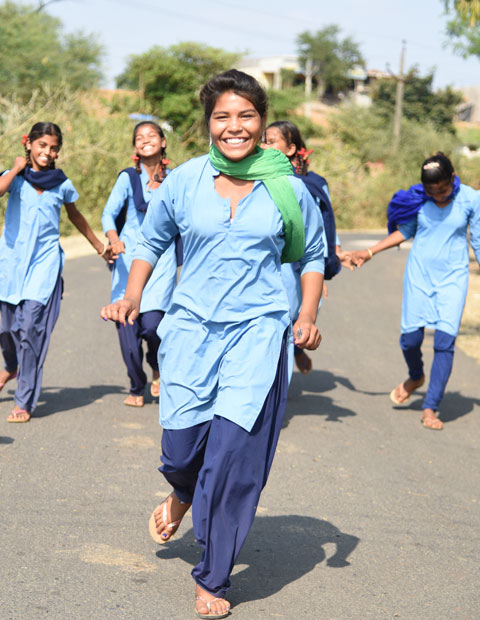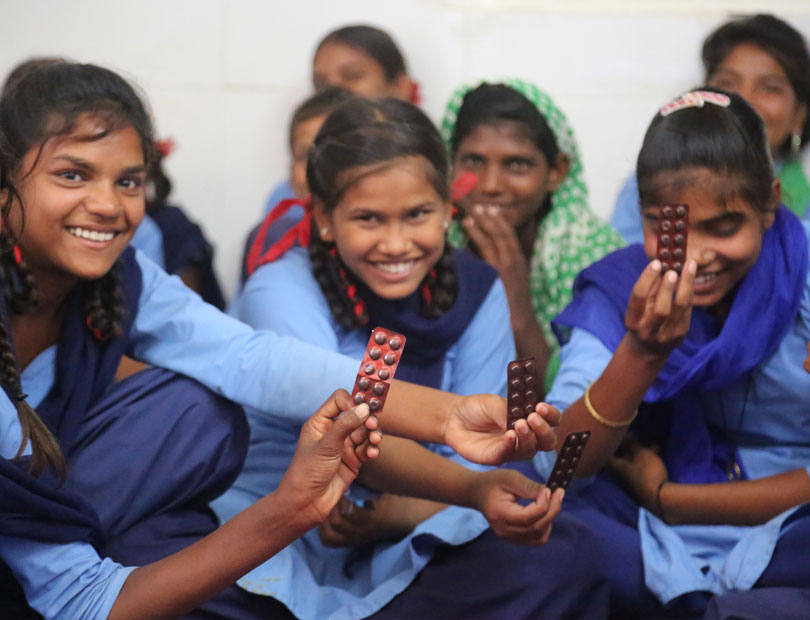

Goal :
Through this program we provide support to adolescent girls who have the desire to break the barriers and attain education. We work with marginalised and vulnerable girls, mainly in the tribal regions, providing meaningful small grants, scholarships and fellowships.
Need :
Under the Right to Education Act, India has witnessed an increase in girls completing their primary education. The drop-out rates in the primary are below 6%. However, we are still facing a crisis when it comes to girls enrolling and completing secondary or higher studies. The reasons for girls not completing higher studies are many; most of which arise from the deep-rooted patriarchy, social norms, and traditions. Educating a male is considered an investment for the future source of income for the family, while, for the girls, education is considered optional. Among children not attending school, there are twice as many girls as boys, and among illiterate adults, there are twice as many women as men. The disparity is even worse in the tribal areas. In the states with large tribal populations, for example, Jharkhand, Odisha, Chhattisgarh, Madhya Pradesh, women from Scheduled Tribes have the lowest literacy rates in the country. Many studies have identified that most tribal girls are unable to afford tuition fees or even money for uniforms or books. Parents are apathetic towards the cause of girls’ education. They prefer girls staying at home and contributing to care work.
We have designed scholarships in collaboration with our partners that provide stipends to the girls so that they can support the continuation of their education. Our fellowship programs in the tribal communities have demonstrated success not just by impacting a girl’s life, but also the change she has brought to her community. Through partner NGOs we have provided fellowships focused on developing and enabling the individual skills and leadership qualities of the girls from tribal and dalit backgrounds, by challenging gender and caste discrimination, bonded child labour, domestic violence and other forms of discrimination. Our learnings from the past reflect that just providing tuition fees may not support girls in pursuing their education goals. As there might be loss of livelihood income for the family, they may not encourage girls to continue their education even though it might be paid for.
- Reaching young girls in the remote villages of Uttarakhand and providing financial support and mentoring for completing their education
- We supported a project that provided safe and conducive educational environment for children of sex workers living in Delhi’s G B Road. The project has helped change the landscape of education in the area – the school which resulted from it has grown from an all-girls’ school to a co-educational institution.



